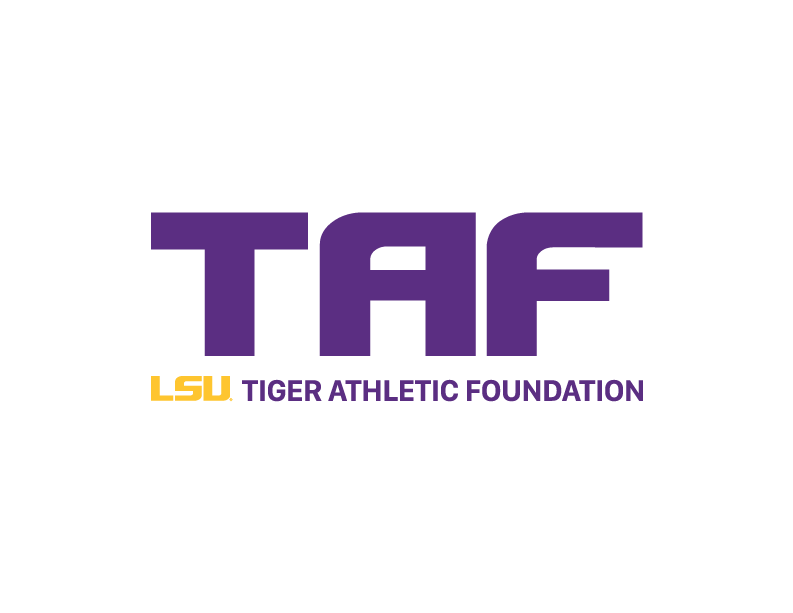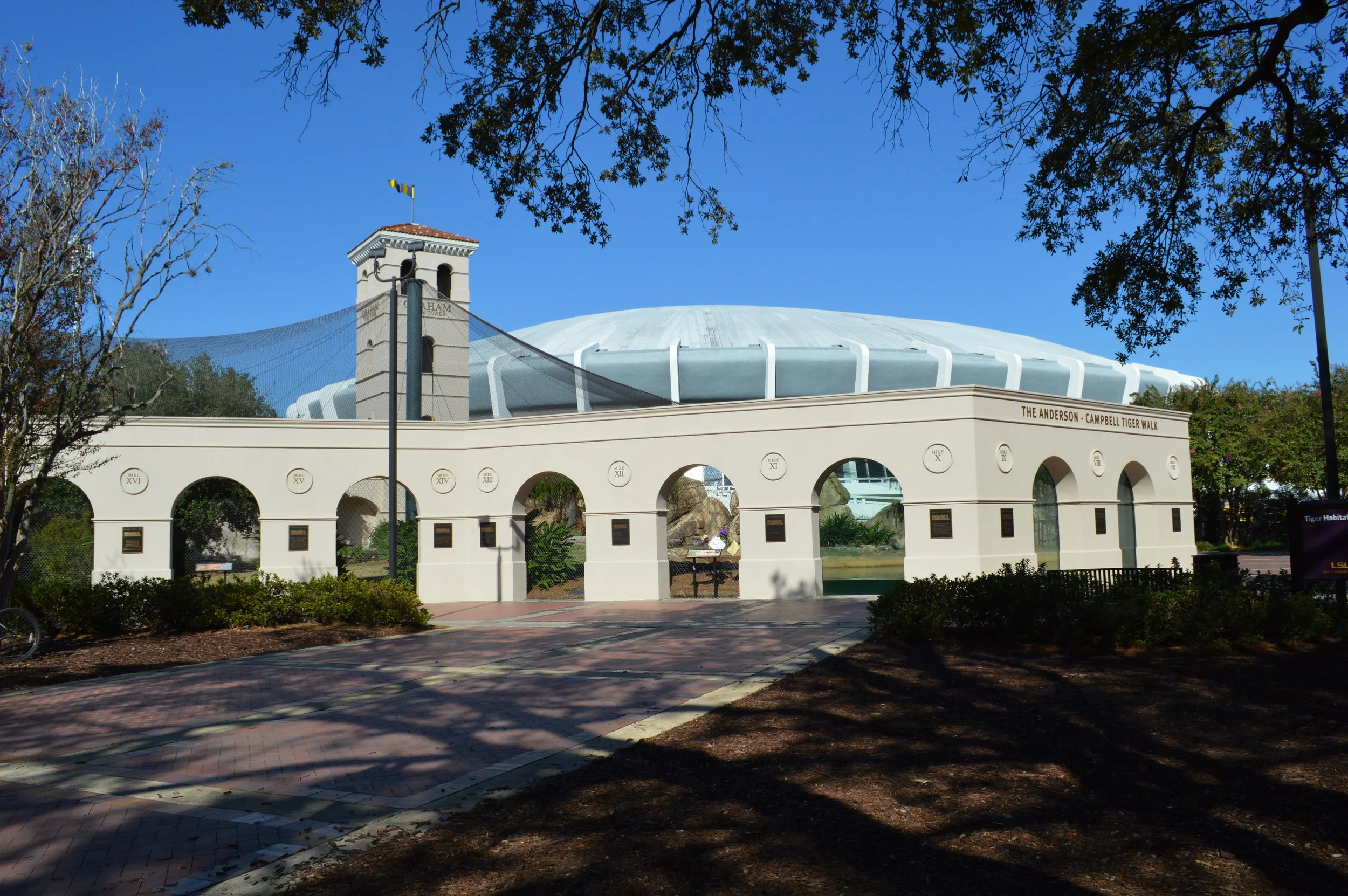Mike the Tiger Habitat
Mike the Tiger, a famed live Bengal Tiger that serves as the graphic image of all LSU Athletics teams, resides between Tiger Stadium and the Pete Maravich Assembly Center. In 2005, a $3.7 million 15,000-square foot environment was created during the reign of Mike V that included lush planting, a live oak tree, a waterfall and a stream evolving from a rocky backdrop overflowing with plants and trees.
The backdrop of Mike’s Habitat features an Italianate tower - a campanile - that creates a visual bridge to the architectural vernacular that is the underpinning of the entire LSU campus. This spectacular habitat allows for state-of-the-art technologies, research, conservation and husbandry programs, as well as educational, interpretive and recreational activities. It is, in essence, one of the largest and finest Tiger habitats in the United States. In preparation for the arrival of Mike VII in the summer of 2017, several enhancements were made to the habitat. The enhancements include a comfort rock, rockwork tree, improved water features, and resurfacing of the pool. The comfort rock is a naturalistic element within the habitat that provides a heated or cooled surface for ultimate relaxation in Mike's Habitat. The rockwork tree imitates a tiger's natural habitat and serves to soften the impact of the steel column supporting the overhead mesh canopy. The pool and stream system will help keep Mike cool in the summer months and foster health activity.
At a cost of approximately $950,000, the 2017 project was fully funded through the Tiger Athletic Foundation. Many of the enhancements were made possible through a generous donation from Kelly and Harper Spears to TAF. Additionally, funding from supporters of TAF's Mike the Tiger Brick Program helped cover cost of this project and future maintenance of the habitat. These donations continue to be a testament to the love the LSU family has for our live Tiger mascot, Mike.
The tiger habitat and LSU’s animal care plan are licensed by the USDA. The facility, tiger and animal care programs are inspected annually to ensure that they comply with the Federal Animal Welfare Act and other USDA policies and guidelines.









